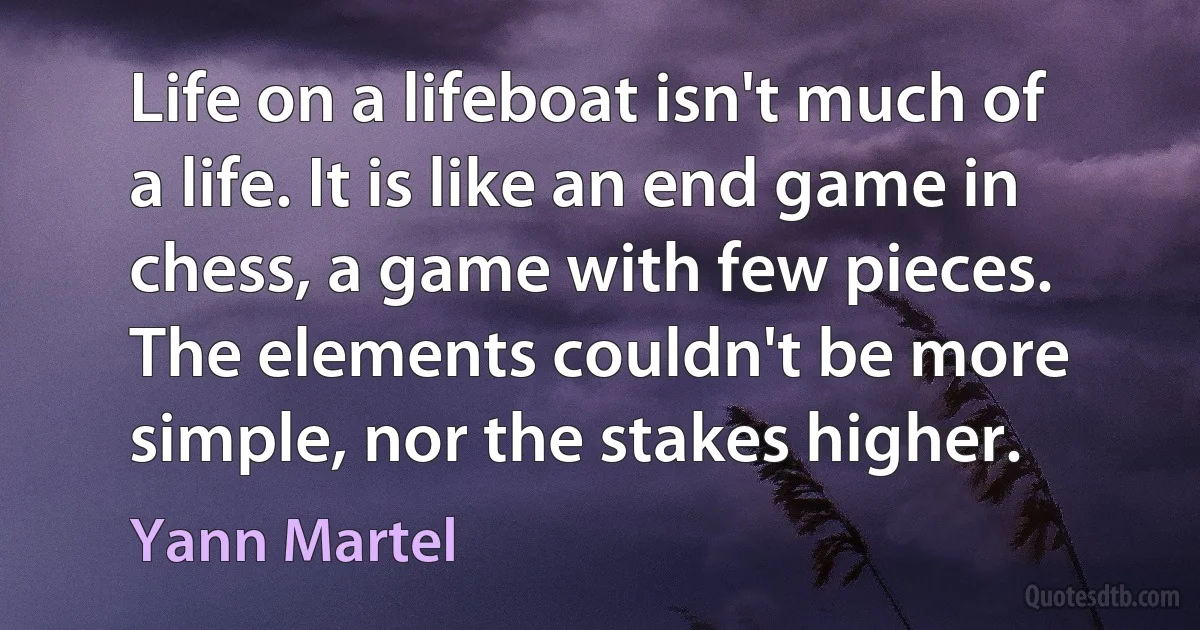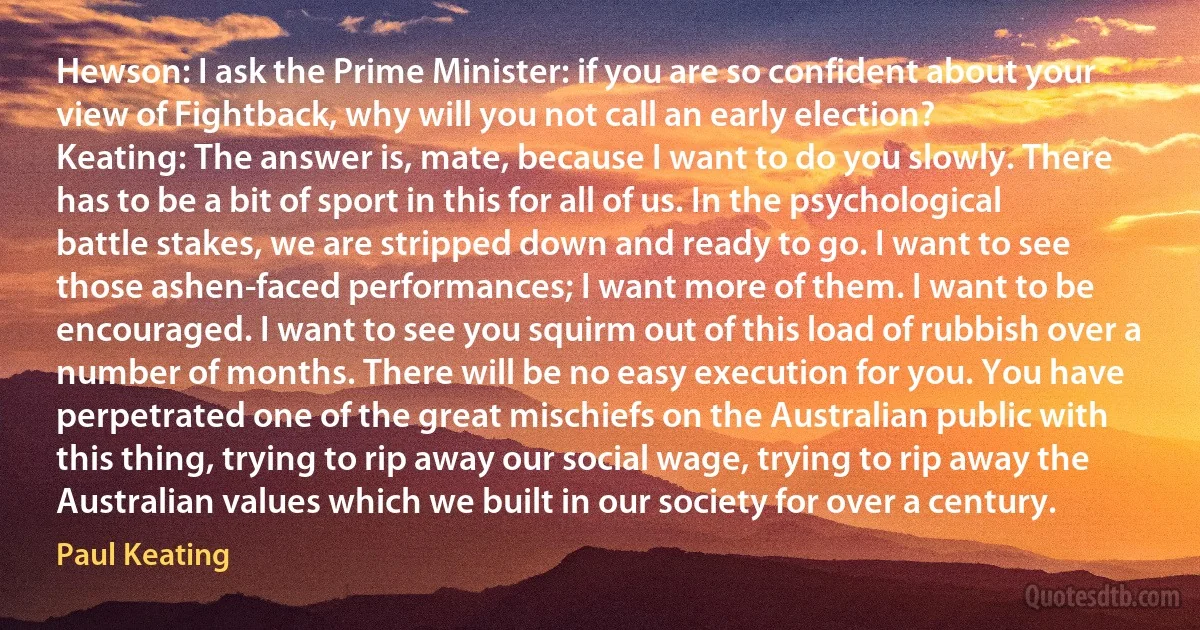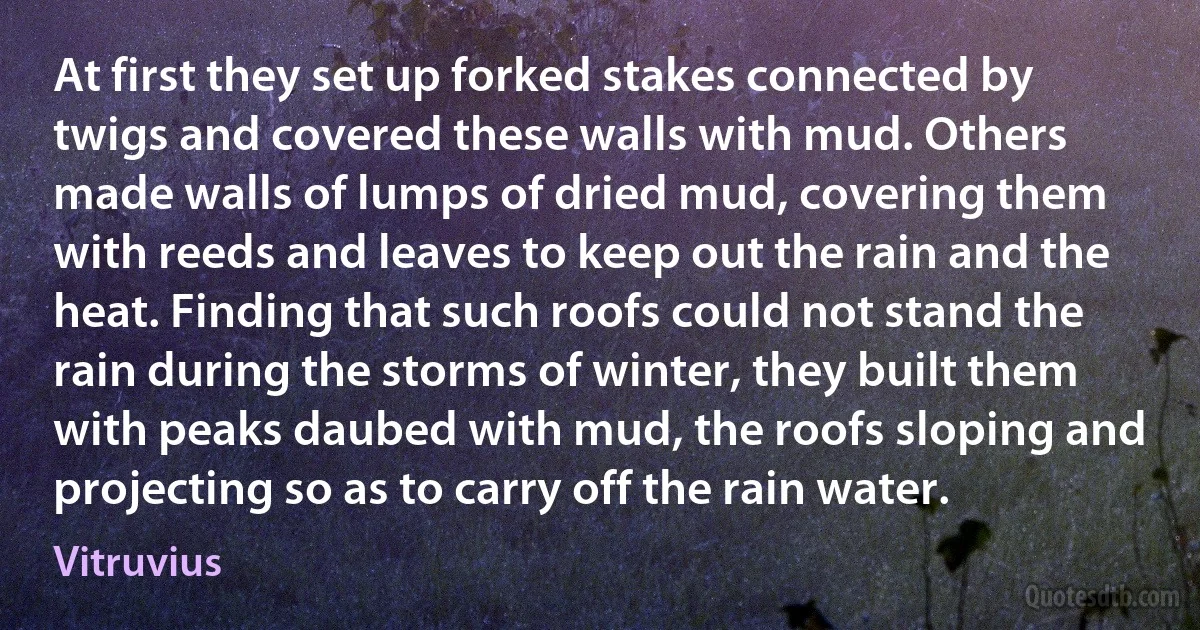Stakes Quotes - page 2
It must have been in his teens, perhaps rather early, that he and his elder brother John, with William Bell (afterwards of Wylie Hill, and a noted drover) and his brother, all met in the kiln at Eelief to play cards. The corn was dried then at home. There was a fire, therefore, aud perhaps it was both heat and light. The boys had played, perhaps, often enough for trifling stakes, and always parted in good humor. One night they came to some disagreement. My father spoke out what was in him about the folly, the sinfulness, of quarreling over a perhaps sinful amusement. The earnest mind persuaded other minds. They threw the cards into the fire, and (I think the younger Bell told my brother James) no one of the four ever touched a card again through life. My father certainly never hinted at such a game since I knew him. I cannot remember that I, at that age, had any such force of belief. Which of us can?

Thomas Carlyle
The plunging limbers over the shattered track
Racketed with their rusty freight,
Stuck out like many crowns of thorns,
And the rusty stakes like sceptres old
To stay the flood of brutish men
Upon our brothers dear.The wheels lurched over sprawled dead
But pained them not, though their bones crunched, Their shut mouths made no moan.
They lie there huddled, friend and foeman,
Man born of man, and born of woman,
And shells go crying over them
From night till night and now.Earth has waited for them,
All the time of their growth
Fretting for their decay:
Now she has them at last!
In the strength of their strength
Suspended-stopped and held.

Isaac Rosenberg
I know the American people understand the stakes in Iraq. They want to win. They will support the war as long as they see a path to victory. Americans can have confidence that we will prevail because thousands of smart, dedicated military and civilian personnel are risking their lives and are working around the clock to ensure our success.

George W. Bush
But the stakes for America are never small. If our country does not lead the cause of freedom, it will not be led. If we do not turn the hearts of children toward knowledge and character, we will lose their gifts and undermine their idealism. If we permit our economy to drift and decline, the vulnerable will suffer most.

George W. Bush
Everybody's got their differences
too bad
here's a circumstance in which the stakes are high
everybody's got their secrets out
so sad
go around the room and see who doesn't cry Soon enough
you'll be free to write it off
you don't know enough
to call a bluff
and the one who does
will never ever tell.

Aimee Mann
He remembered his dismay at finding himself committed to a hand of cards without having honestly looked at the stakes, fourteen years ago. Had he been doing it again? But if the stakes were too frightening to consider, and the game was already lost, what value could there be in clear comprehension?

Tim Powers
The new governmental reason does not deal with what I would call the things in themselves of governmentality, such as individuals, things, wealth, and land. It no longer deals with these things in themselves. It deals with the phenomena of politics, that is to say, interests, which precisely constitute politics and its stakes; it deals with interests, or that respect in which a given individual, thing, wealth, and so on interests other individuals or the collective body of individuals. ... In the new regime, government is basically no longer to be exercised over subjects and other things subjected through these subjects. Government is now to be exercised over what we could call the phenomenal republic of interests. The fundamental question of liberalism is: What is the utility value of government and all actions of government in a society where exchange determines the value of things?

Michel Foucault
Sheep are especially sensitive to the exact moment of the turn of the tide. In this game, nine tethered sheep react, pull on the stakes, jolt the chairs and rattle the tea-cups. Bets are taken on the combined sensitivity of any three lines of sheep -- read vertically, horizontally, or diagonally. Since there are normally three tide-turns every twenty-four hours, it is normal practice to take the best of three results. Reliable clocks, calendars, and time-tables are used to determine the accuracy of the sheep's forecast.

Peter Greenaway



